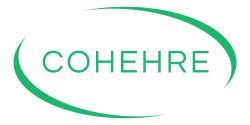Stress & Sleep webinar insights
By Kirsten Garré In NewManaging Stress and Sleep: Essential Insights for Higher Education Success
The intersection of academic pressure and student wellbeing has never been more critical to address. Our recent free webinar on “Stress and Sleep in Students in Higher Education”, by Julie Vanderlinden (Odisee University of Applied Sciences), caught the interest of 57 registrants. The webinar offered valuable evidence-based strategies that can transform how students approach both academic challenges and personal wellness.
Understanding the Stress-Sleep Connection
The session explored stress as a multifaceted experience, examining everything from daily stressors to our body’s complex physiological responses. Rather than treating stress as simply something to eliminate, the webinar emphasized understanding how stress manifests in our lives and recognizing the critical role that quality sleep plays in our ability to cope effectively.
The integration of practical relaxation techniques highlighted a key insight: the powerful connection between our physical and mental states. Through breathing exercises and full body scan techniques, participants discovered how simple interventions can create meaningful change in both stress management and sleep quality.
Practical Strategies That Make a Difference
Several techniques were proposed and proved to be particularly valuable:
- Breathing exercises and full body scan
- Pen-and-Paper Exercise
- Recognition Over Dismissal: Perhaps most importantly, the session emphasized acknowledging stress rather than dismissing it. This shift in perspective allows students to develop more effective coping mechanisms rather than ignoring warning signs. Webinar participants identified this as a critical area for personal development, particularly noting the challenge of recognizing their own stress patterns and developing strategies to calm racing thoughts.
The Longevity Factor
One particularly striking insight involved understanding stress’s lasting impact. Academic stress doesn’t simply disappear when exams end or papers are submitted. Recognizing the extended timeline of stress responses helps students develop more sustainable management strategies throughout their educational journey. This understanding shifts the focus from short-term stress relief to building long-term resilience.
Looking Forward: Sleep and Academic Performance
The connection between sleep patterns and various aspects of mental health, including personality factors, represents an emerging area of research with significant implications for student success. Quality sleep affects everything from memory consolidation to emotional regulation, making it a cornerstone of effective academic performance.
Attendee feedback revealed strong interest in exploring additional sleep improvement techniques and gaining deeper understanding of the relationship between sleep patterns and personality disorders, suggesting these topics warrant continued exploration in future educational sessions.
Implementation for Student Success
For students in higher education, these evidence-based strategies offer practical solutions to improved wellbeing and academic performance. The key lies not in perfect execution but in consistent implementation of simple, effective techniques.
The emphasis on recognizing our body’s signals and responding with appropriate interventions creates a foundation for long-term success. Rather than viewing stress management and sleep improvement as additional burdens on an already full schedule, these exercises can be integrated into existing routines as essential tools for academic and personal success.
The webinar’s core message resonates clearly: managing stress and prioritizing sleep aren’t luxuries for students—they’re essential components of sustainable academic achievement and overall wellbeing.
This free webinar took place on 20/05.


